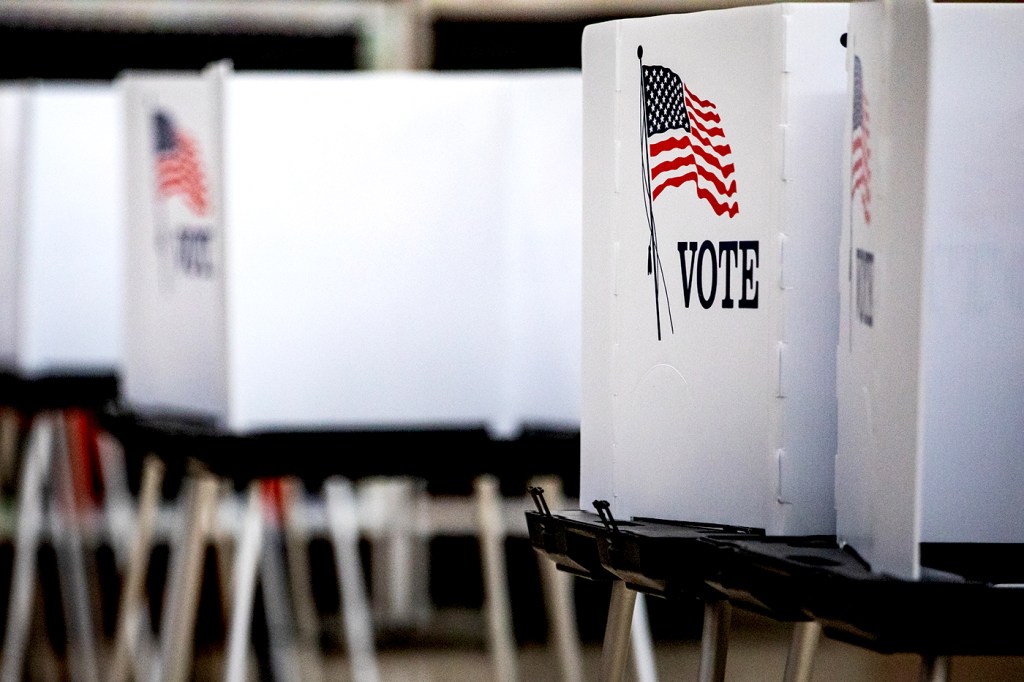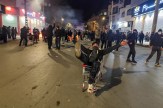Jewish Americans back Harris over Trump by 2-to-1 margin, new research shows
As the 2024 election nears, Jewish Americans seem to be throwing their support behind Vice President Kamala Harris, according to new Northeastern survey research

As the 2024 election nears, Jewish Americans seem to be throwing their support behind Vice President Kamala Harris, according to new Northeastern survey research.
Querying both American Jews and non-Jews in recent months, researchers with the Civic Health and Institutions Project (CHIP50) found that American Jews support Harris by a margin of roughly 2-to-1, with 60% of respondents saying that if the election were held today they’d vote for Harris compared to 30% for former President Donald Trump.
The picture of support among non-Jews, who participated in the survey as a point of comparison, fell more in line with mainstream polling, which slightly favors Harris.
“That pattern [60% to 30% of American Jews favoring Harris over Trump] stands in contrast to the preferences of non-Jews in the sample, who favored Harris over Trump by only 4 percentage points (44% to 40%),” the researchers wrote.

They note that the data is consistent with other polling and research showing that American Jews by and large lean Democratic.
The national survey data was collected between Aug. 30 and Oct. 8, and analyzed feedback from 27,933 participants — 907 of whom were Jewish Americans. The data came from a non-probability sample through market research firm PureSpectrum.
The results provide a “deeper look at the distinctive concerns of persons of Jewish faith and descent, relative to the wider pool of non-Jewish American respondents,” researchers wrote.
It’s the latest data from the CHIP50, a research initiative led by David Lazer, a Northeastern distinguished professor of political science and computer science.
Featured Posts
The survey also found that Jewish participants viewed Trump as “strongly pro-Israeli” compared to non-Jews — a finding that Lazer described as paradoxical, given the strong measure of Jewish support for Harris. However, a majority of non-Jews (56%) think Harris would be more evenhanded with respect to both sides in the conflict compared to 42% of Jews.
Attempting to account for the data, Lazer said: “My guess is that a lot of the Jewish respondents who said they want U.S. policy to be evenhanded are much more heavily supportive of Harris — and that those who want it to be totally tilted toward Israel are more supportive of Trump.”
“There is a very substantial minority of Jews who want the policy to be evenhanded, and a fair number who say it should be evenhanded or tilted toward Israel, but not exclusively so,” Lazer adds.
Researchers note that the “combustible mix” of a regional war in the Middle East following the Oct. 7 attack by Hamas on Israel, coupled with domestic protests in the U.S. and elsewhere, has created “a marked period of uncertainty for American Jews.”
When it comes to who they thought would better handle the Israeli-Palestinian conflict, Jewish participants favored Harris by a much smaller margin (36% who said “definitely Harris” compared to 27% for Trump). Roughly 27% of Jews and 28% of non-Jews said Trump would definitely handle the situation better.
American Jews also said they were acutely concerned about antisemitism, with 54% saying they consider it “a very serious problem” compared to 27% of non-Jews. Similarly, American Jews held similarly strong views about Islamophobia, with 40% of Jewish respondents saying they view it as “a very serious problem” compared to 25% of non-Jews.
“It’s notable, but not surprising, that Jews would be more concerned about Islamophobia than non-Jews,” Lazer says.
That finding, he says, may stem from “a place of having felt the pain of being a target of discrimination.”
“Generally, in our prior report on the subject, we’ve found that having positive or negative opinions towards Jews or Muslims is heavily correlated,” Lazer says.
The latest round of CHIP50 surveys were conducted with support of the Knight Foundation, which provides support for local journalism ventures.
“The findings presented here are, of course, a snapshot in time, but they contribute to a complex and evolving picture for Jewish Americans as they navigate and respond to this time of election, war, and evolving cultural dynamics,” the researchers wrote.











